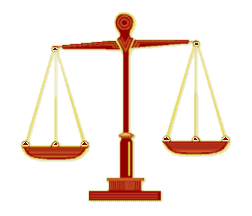Brief (law) facts for kids
In law, a brief is a special written paper that lawyers give to a court. Think of it as a detailed argument explaining why their client should win a case. Each court has its own rules for how these papers must look and what they must include.
A brief usually contains all the important reasons and facts for a lawsuit. It explains what happened and why the law supports one side. Lawyers use briefs to show the court which rules apply, what similar cases in the past have decided, and how all of this fits the current situation. When a lawyer writes a brief, they are promising to give the court good reasons to agree with their client.
Contents
What is a Legal Brief?
A legal brief is like a detailed story or report that a lawyer writes for a judge. It's not just any story, though; it's a very formal one that follows strict rules. The main goal of a brief is to convince the judge to make a decision that helps the lawyer's client.
Why are Briefs Important?
Briefs are super important because they help judges understand complicated cases. Imagine a judge has many cases to hear. A well-written brief helps them quickly grasp the main points, the facts, and the laws that apply. It's how lawyers present their best arguments in an organized way.
What Goes Inside a Brief?
Every brief needs to include a few key things:
- Facts of the Case: This part explains exactly what happened. It's like setting the scene for the judge.
- Legal Arguments: This is where the lawyer explains why their client should win, based on the law. They might refer to specific rules or laws that apply.
- Past Decisions: Lawyers often look at how similar cases were decided in the past. These past decisions, called "precedents," help show the judge how the law has been used before.
- Conclusion: This is where the lawyer clearly states what they want the court to do.
Different Kinds of Briefs
There are several types of briefs, depending on the kind of case and the court involved.
Civil Law Briefs
In civil law cases, briefs are used when people or groups have disagreements, like over a contract or property. For example, if two companies disagree about a business deal, their lawyers would write briefs explaining their side of the story and why the law supports them. These briefs help the court decide who is right.
Briefs in Cases About Rules
When someone is accused of breaking a rule or law, briefs are also used. In these cases, one side (often representing the community or state) writes a brief explaining why they believe the rule was broken. The other side (the person accused) writes a brief explaining why they believe they followed the rules or why the accusation is wrong.
Appellate Briefs
Sometimes, after a judge makes a decision, one of the sides might not agree with it. They can ask a higher court, called an appellate court, to review the decision. The written argument they submit to this higher court is called an appellate brief. This brief explains why the first decision was wrong and asks the appellate court to change it.
Amicus Briefs: Friends of the Court
An amicus curiae is a Latin phrase that means "friend of the court." An amicus brief is a special brief written by someone who is not directly involved in the case but has a strong interest in its outcome. For example, a group that cares about environmental protection might file an amicus brief in a case about pollution, even if they aren't one of the main sides in the lawsuit. They do this to share their expert opinion or unique perspective with the court, hoping to help the judge make a fair decision.
 | James Van Der Zee |
 | Alma Thomas |
 | Ellis Wilson |
 | Margaret Taylor-Burroughs |


